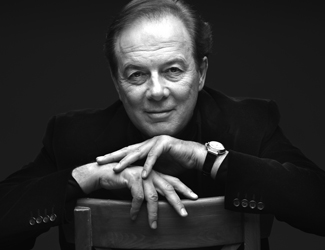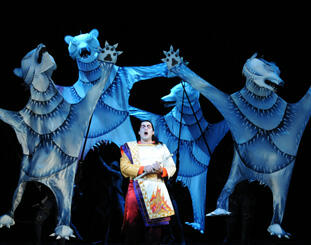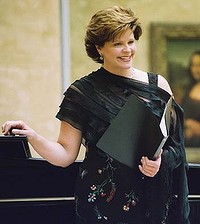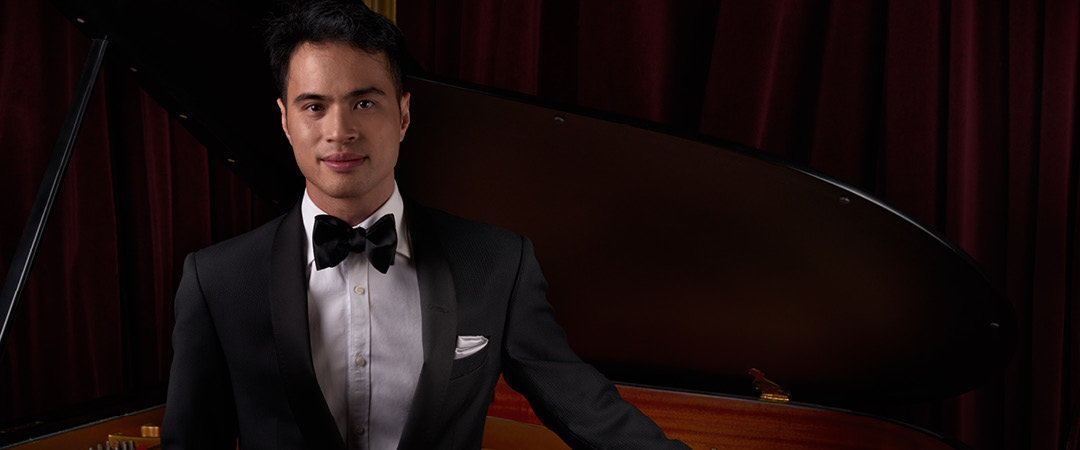Concert Review: Stephen Hough/ Musica Viva

Stephen Hough
Musica Viva
April 16, City Recital Hall, Sydney
On his third national solo tour for Musica Viva, pianist Stephen Hough presented a programme that was deeply introspective and austere in its sentiments but ultimately uplifting, inspired by the diametrically opposed inspirations of the sacred and the salon.
Opening his programme was the Sonata in A minor D784 by Schubert, completed in February 1823 and brimming with complex ideas, but written at a time when Schubert contemplated a bleak and premature death from syphilis. The lack of knowledge about the disease, the diagnosis, the ghastly symptoms and the social isolation he faced, were heavy burdens to bear. The sonata profoundly reflects Schubert’s despair and explosive rage at the fate that befell him.
Knowing this, the fist movement of the D784 can sink into maudlin self-pity, but after a matter of fact exposition, Hough developed the sense of indignation with a growling left hand and sobbing dotted rhythms. A gracious second movement was followed by incisive triplet figures in the final movement whose rising pattern tripped headlong into the redemption and rebirth that Schubert sought, as expressed in a poem, Mein Gebet (My Prayer), he wrote in May that year: ‘With a holy zeal I yearn / Life in fairer worlds to learn… annihilated I lay in the dust, / Scorched by agonizing fire, / My life’s martyr path, / Approaching eternal oblivion….And a pure, stronger being / Let, Almighty, it be consecrated’.
César Franck’s Prelude, Chorale and Fugue (1884) integrates both vocal and keyboard forms, its structure paying homage to Bach as well as to Beethoven and Liszt. It is a substantial work which again opened a window into the soul of the composer who was commercially exploited by his father and who sought solace in the music of the church until he emerged from four decades of avoiding the piano, to write this sumptuous piece. Hough demonstrated the uncanny ability to transform the Steinway concert grand into what sounded at times like an organ and at times like church bells. He captured a Gallic lightness and fluidity in the Prelude and a gentle strength in the chords of the Chorale. The chromatic Fugue was understated but assertive, culminating in a glorious cascade of ringing bells.
After the interval, Hough performed his own composition, Trinitas, which he later explained was the concept around which the programme was curated. This impressive and engaging three movement work written in 2015 is based on the 12 tone serialist technique, and so, it is formulaic to a degree. It is never easy to recall and describe a new piece at first hearing. Initial reactions can change when the work is heard again and when performed by other exponents. The spacious opening notes and chords of the opening bars of Trinitas progressed to contracted rhythms which then jived in syncopation, making much use of the upper register of the piano; the hushed reverence of the Trinitarian chant “Holy, Holy, Holy” punctuated by shimmering cluster chords.
Unlike the 18th century when composers premiered their own piano works, the 20th and 21st centuries saw the emergence of performers as distinct from composers who now rarely, if ever, perform the music they have written. To hear Hough perform his own music removes a degree of separation and we are able to hear the music exactly as the composer intended. As is custom, this was the only work Hough performed from a score, explaining later, that it indicates he is playing a defined piece of music and not improvising.
Hough sheathed the afternoon’s programme with the music of Liszt and dazzling renditions of two Valses Oubliées S 215 (Allegro and Allegro vivace) and two of the Transcendental Studies S 139 (No 11 Harmonies du soir and No 10 Allegro agitato molto).
As ever, Stephen Hough was generous with his prolific talent, his intellect and insights, treating the audience to three encores – Elgar’s Salut d’amour, a piano version of Das alte Lied, a song made famous by Richard Tauber and a final parodic romp called Matilda’s Rumba for which Hough took all the ‘blame’ – before retiring for a Q and A session with the audience.
The performance was well supported in print which included Hough’s comments as well as historical, biographical and musicological notes.
A cleverly constructed programme with many recurring themes uniting the selections, brilliantly performed.
Shamistha de Soysa for SoundsLikeSydney©
Stephen Hough reprises this performance tonight, April 18 at the City Recital Hall at 7 pm. It will also be broadcast live on ABC Classic FM.







